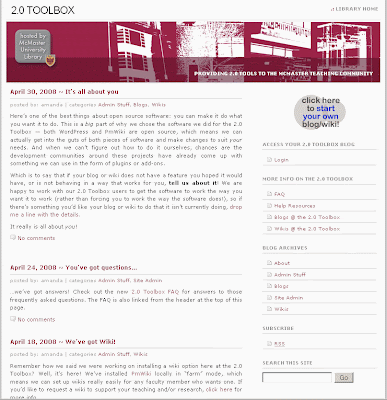
In Kopenhagen the first conference on Universities' Intellectual Property took place: COPENMIND (1. - 3. September 2008). The organizer Muldow said in "University Journal" that universities worldwide are inadequately communicating their innovations to the industry. Therefore he has founded the conference as a kind of marketplace for building of close university-industry relationships that holds many unexploited opportunities. This is important for efforts that should result in a commercial product or service. But what about libraries: is such a conference of interest for libraries?
Depends on the participating organizations, one could say. The truth is: Libraries need to be in contact with other organizations from other fields. Why bnot cooperating with companies like Oracle: Such a company could create the technical infrastructure, whereas librarians are responsible for the contents.
Besides libraries have to strengthen their position in their environment. For instance, researchers have to recognize the academic library through their services. Libraries have to offer the right services to establish the library as a brand so that faculty members are saying: "Yes, I am a fan of the 'LIBRARY' !"
If libraries want to be the central information provider they have to offer services that justifies it. (This is one of the things I highlighted in my final dissertation.)
The problem of inadequatly communication is existing in the LIS-environment, too. Moreover, academic libraries are challenged more than ever:
- there is a fast and easy access to information via the Internet
- there is a rising number of information providers
- statistics and studies show that libraries' users and/or visits are in a decrease
- the library has to provide a better information supply while budgets are in a decrease.
The article "Libraries in the Converging Worlds of Open Data, E-Research, and Web 2.0" presents some of the key technologies, tools, and organizations within the open data movement and conclude that these have the potential to not only increase possibilities of knowledge transfer, but ultimately generate new knowledge.
The efforts that libraries take to better their services lead to a more positive image of the library (which would be good for all stakeholders).






